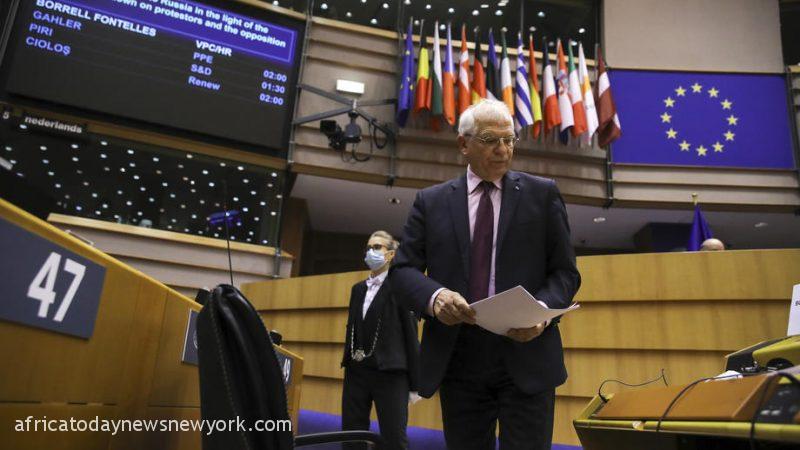The suspension of a visa deal with Moscow by the European Union (EU)’s foreign ministers would necessitate a more difficult process for Russian nationals to access the union.
While France and Germany have continued to oppose the idea, Ukraine and some other members had advocated for a total ban.
Since the Russian invasion of Ukraine in February, more than a million Russian citizens have relocated to the EU. It is believed that several eastern EU nations bordering Russia may apply more restrictions.
Alexander Glushko, the deputy foreign minister of Russia, said the EU was ‘shooting itself in the foot’ and that the action would not go unretaliated.
Dmytro Kuleba, the foreign minister of Ukraine, criticized the action and describes it as a ‘half-measure.’
He said that ‘With regard to Russia [this] is exactly what led to the large-scale invasion of February 24th,’
Read Also: Russian Visa Deal Suspended By European Union Ministers
The significant increase in border crossings from Russia, according to EU foreign policy leader Josep Borrell, necessitated the suspension of the deal.
‘This has become a security risk for these neighboring states,’ he said. ‘In addition to that, we have seen many Russians traveling for leisure and shopping as if no war was raging in Ukraine.’
However, he issued a warning against alienating Russians who oppose the war or ‘civil society’
Despite having visas, Mr. Borrell claimed that countries bordering Russia were still capable of imposing travel restrictions on their nationals.
He cautioned against undermining Russians who oppose the war or “civil society,”
According to Mr. Borrell, bordering nations are still able to impose travel restrictions on Russian nationals, even if they have valid visas.
Since member nations were unable to come to an agreement on outright Russian bans, the policy, which makes it harder and more expensive for Russians to obtain a visa, is considered a solution.
Finland, Estonia, Latvia, Lithuania, and Poland, the five EU nations that border Russia, said in a joint statement that they could impose temporary bans “in order to address imminent public security issues.”
According to Foreign Minister Urmas Reinsalu, who was cited by Reuters, Estonia intends to prevent the mass of Russians from entering the country within weeks.
Approximately 12 million visas—or about 8% of the population—had been granted to Russians, according to Czech Foreign Minister Jan Lipavsky, who added that the European Commission will seek methods to improve the situation.
However, France and Germany cautioned in a statement issued that “far-reaching restrictions” could bolster Russia’s victimization narrative and alienate Russians in the future.
